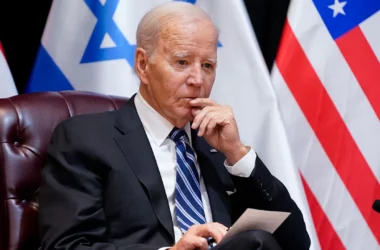New revelations have emerged that cast a shadow over the legacy of Bill Gates, one of the most influential figures in the tech world. According to a recently published book, Gates’ relationship with the late pedophile Jeffrey Epstein was not just a regrettable mistake, but a calculated move driven by Gates’ ambition to secure a Nobel Peace Prize. This unsettling connection raises serious questions about the lengths to which Gates was willing to go to enhance his public image.
In “Billionaire, Nerd, Savior, King: Bill Gates and His Quest to Shape Our World,” Anupreeta Das, finance editor at the New York Times, delves into the details of Gates’ interactions with Epstein. The book reveals that Gates, who has often been lauded for his philanthropic efforts, was drawn to Epstein largely because he believed the notorious sex offender could help him win the prestigious Nobel Prize. This disturbing alliance, formed despite Epstein’s 2008 conviction for procuring underage girls, highlights a cynical side of Gates that many might find hard to reconcile with his public persona.
The relationship between Gates and Epstein began in 2010, well after Epstein’s criminal activities were publicly known. According to Das, Epstein used the promise of access to Nobel influencers as a way to ingratiate himself with Gates. The two, along with Norwegian diplomat Terje Rød-Larsen, even traveled to France in 2013 to meet with Thorbjørn Jagland, then-chair of the Nobel Committee. Despite these efforts, Gates’ pursuit of the prize proved fruitless, but the damage to his reputation was already done.
Rød-Larsen, who played a key role in facilitating the meeting, later resigned from the International Peace Institute in 2020 due to his ties to Epstein, underscoring the broader fallout from associating with the disgraced financier. Gates, in a 2021 interview with CNN, admitted that his time spent with Epstein was a “huge mistake,” but this acknowledgment does little to mitigate the serious ethical concerns raised by the nature of their relationship.
A spokesperson for Gates has dismissed portions of Das’ book as “highly sensationalized” and containing “outright falsehoods,” but the core narrative remains troubling. Gates’ representatives insist that his interactions with Epstein were strictly related to philanthropy, not personal gain. However, this claim is difficult to accept given the explicit attempts to leverage Epstein’s connections for a Nobel Prize.
The revelations also shed light on another problematic aspect of Gates’ past—his behavior towards women in the workplace. Das reports that during his time at Microsoft, Gates was known to flirt with female employees and make unwanted advances, including asking out a Microsoft staffer while he was still the company’s chairman. While sources quoted in the book emphasize that Gates was no “Harvey Weinstein,” these actions contribute to a pattern of behavior that is deeply concerning. So much so, that managers reportedly took steps to ensure that Gates was never alone with female employees, highlighting the extent of the issue.
Melinda Gates, who divorced Gates in 2021, has publicly expressed her discomfort with her ex-husband’s relationship with Epstein, describing Epstein as “evil personified” in an interview with Gayle King. Her comments add weight to the criticism surrounding Gates’ judgment and the moral compromises he seemed willing to make in pursuit of personal and professional goals.
Jeffrey Epstein’s death in 2019 while awaiting trial on sex trafficking charges may have ended his ability to manipulate others, but the repercussions of his associations continue to affect those who were connected to him. For Bill Gates, a man once celebrated for his contributions to technology and global health, these revelations serve as a stark reminder that even the most respected figures are not immune to the corrupting influence of power and ambition. Gates’ pursuit of a Nobel Prize, facilitated by one of the most notorious criminals of our time, is a stain that will not easily be erased from his legacy.








